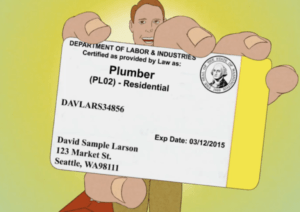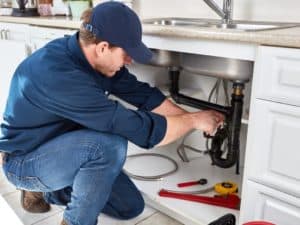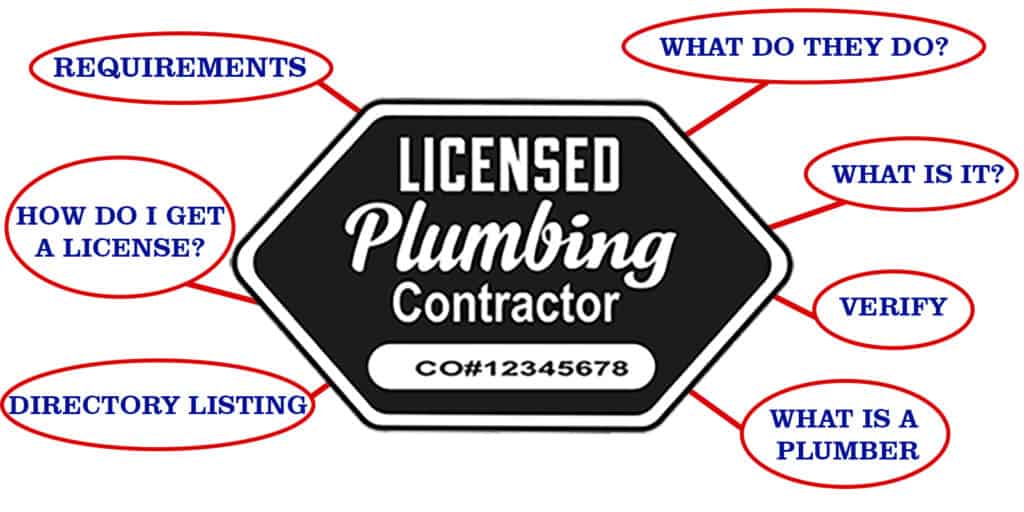Licensed Plumbing Contractors: Who They Are and How They Can Help You
Plumbing is an important part of any structure. Residential or commercial plumbing allows efficient delivery of safe water and removes wastewater. This is achieved via a complex system of pipes that lies behind the walls. When there’s a blockage or issue, you’ll need a plumber’s help to resolve it.
Licensed plumbers go through extensive training. They also many courses to know about common issues in today’s plumbing systems. Yet, in some situations, you may need the expertise of a plumbing contractor rather than a plumber.
When you’re dealing with a leaky faucet or clogged drain at home, you’re more likely to call in a plumber. Plumbing contractors are trained professionals who have many skills. These skills include renovating, remodeling, and making new plumbing constructions. They also handle tasks that involve working with a home’s septic system and clean water supply.
There’s a high probability that expert plumber at your local plumbing company is also a contractor who helps new businesses and homeowners determine a viable drainage solution for their properties.
What Does a Licensed Plumbing Contractor Do?
Plumbing contractors can do all the tasks a journeyman plumber can, as well as many others. Despite being skilled in all aspects of plumbing, they stick to complex jobs. These jobs may include constructing a building’s waste disposal system, connecting water heaters like a tank-less, electric, or gas heater, or even installing a gas connection.
During initial construction, licensed plumbing contractors are tasked a few things. First, installing water softening equipment, backflow prevention methods, and gas control valves. The list goes on to include other kinds of equipment connected to a building’s water supply. This calls for the skills of a professional plumbing contractor.
After installation, the customer calls in licensed plumbing contractors for inspection or maintenance. Plumbing Contractors also work as consultants for construction building companies. They can also be outsourced during the first few stages of planning a new project or building.
Many property owners call in a licensed plumbing contractor for inspection purposes to make sure that the building or structure complies with federal, state, and local building codes. They also make sure that the plumbing is compliant with the ADA.

Getting your plumbing contractor license depends on what state you’re living in. It also depends on where you plan on practicing.
After having enough experience, you need to fulfill the common state requirements. For example, paying an application fee and passing an exam that covers various topics. These topics will cover building safety codes, law, and business.
Some states also need proof of your financial credibility. Since your license will allow you to start your own plumbing business, you need to provide information about your net worth and insurance.
Requirements
The U.S. Federal Government doesn’t issue plumbing licenses to journeyman or master plumbers. Each state provides qualified plumbers with a different license. Requirements for each state differ from the other, although there are some similarities.
You need to know which government entity issues a license in your state of practice. You also need to know if there are any distinct education requirements. Usually, state governments issue a license. In certain cases, the state passes down these responsibilities to local governments, like those of a county or state.
Thus, you won’t be licensed to work throughout the state, but only a specific town or city. This is most common in populated states, like New York.
What Is a Plumbing License?
Due to the delicate and complex nature of piping and drainage systems in buildings, it’s important that plumbers have a license before they practice. This prepares them for most of the challenges they can expect in the field.
A license, such as that provided by a third-party certification authority, certifies that you know how to work with commercial and residential buildings’ systems. Large corporations and businesses are looking for licensed plumbers because the risk of hiring an unlicensed plumber runs too high. Hiring an unlicensed plumber can lead to a very expensive project if something were to go wrong.
How to Become a Plumbing Contractor?

Aspiring plumbing contractors should have completed a period of apprenticeship. This will happen with a company or contractor organization. After training for 3 to 4 years, the plumber should have completed a certain number of education. They should also have on-the-job experience hours of training at a local trade school.
Hands-on training teaches how to work with fixtures, waste systems, and water pipelines. Your fixed number of education hours should include areas of study, like preparing drafts, reading blueprints, math, chemistry, and physics.
How to Become a Licensed Plumber?
For people trying to achieve the goal of becoming a tradesman, it’s still important that they put in the effort to get a rewarding career path. There’s a lot of hard work involved. Plumbers need to complete learning, testing, and practical training before getting their license.
For starters, you need to have a high school diploma and need to be rather proficient in various subjects. Subjects include science, math, and IT. Then, students need to enroll in a vocational trade school to take up an apprenticeship. This period will prepare you for the licensing test and you also earn a salary throughout the four years.
You can enroll in a college or trade school. Like any academic decision you make, there are some pros and cons of each option. Some options you’re likely to see include Fortis College, Lincoln Tech, and UEI College.
Each of these institutes offers a multitude of benefits. These include instructors, professional guidance, and hands-on practical experience. It’s up to you to make a decision where you want to complete your apprenticeship.
Lastly, you need to apply for a license in the state where you work. You will also need to renew your license on an annual basis to keep working.
How Do I Find Out If a Plumber Is Licensed?

If you’re a property owner, you know how difficult of a task it is to hire the right contractors for plumbing. It may be cheaper to work with unlicensed contractors but this doesn’t protect your property. It also doesn’t protect you from potential fraud, which can cost you more in the long run.
Comparatively, working with state-licensed contractors gives you peace of mind. You’ll be safe from overpriced services and the risk of inexperienced people damaging your property’s water systems.
It’s crucial that a plumbing contractor provide you with their license number when you ask for it. After receiving it, it takes little time to check if their license is still valid. You can also see the last time they had it annually renewed.
For more information on how to find out if a plumber is licensed, click here!
Check a Directory
You can save yourself the hassle of checking a plumber’s license after calling them in, by looking it up on their website beforehand. Plumbing issues can be a real pain, so many property owners forget about details like license numbers. Nevertheless, you’ll be investing in better service by checking their license first.
If you don’t have a lead on any expert plumbing contractors in your area, website directories like PlumbingLicensing.com and ContractorQuotes.us can help you find a licensed plumbing contractor, and even Home Advisor for directory listings can give you a helping hand. These sources are great because plumbing companies and contractors can only be listed on the site if they’re licensed.
In fact, you can even check PHCEid for a reliable contractor to fix your home’s plumbing issues. PHCEid verifies all companies that register with them. After determining the license is a plumbing contractor added to the PHCEid directory.
With a directory,you save the time it would take you to scour the market for a licensed professional and get the job done within adequate time.
Advocate for Licensing
PHCEid.org is an advocate for Plumbing, Heating, Cooling, and Electrical contractors to properly identify their license status for public and customer awareness. Professional Contractors have a license or certification to work in commercial and residential properties.
A lack of proper certification or licensing for becoming a skilled trade professional compromises the integrity of the trade industry. Contractors listed on the PHCEid.org website are licensed and certified according to codes and laws set forth by each governing state and/or entity.
Licensed Contractors work in compliance with local and state codes set forth by their governing trade industry board. Get more information at PHCEid.org or call 844-954-2367 today!




